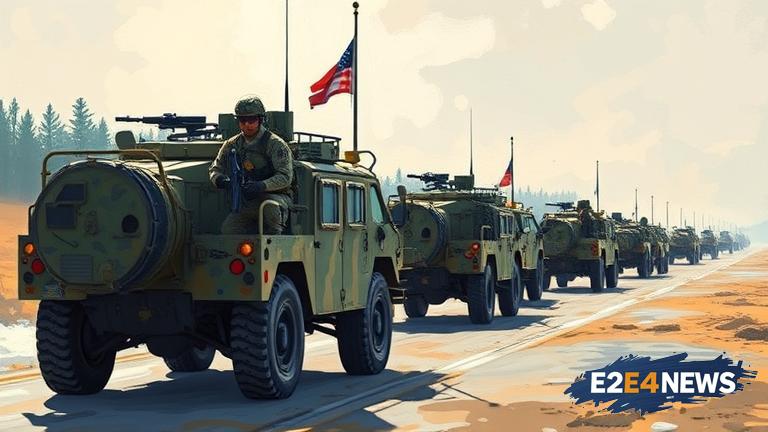The Virginia National Guard has announced its deployment to support U.S. Immigration and Customs Enforcement (ICE) operations, effective August 4, 2025. This move is part of a broader effort by the state to enhance its role in addressing immigration and border security concerns. The deployment is expected to involve a significant number of National Guard personnel, who will be tasked with providing logistical and operational support to ICE agents. The Virginia National Guard’s involvement in ICE operations is not unprecedented, as the state has previously provided support for similar initiatives. However, this latest deployment is notable for its scale and scope. The decision to deploy the National Guard has been welcomed by state officials, who argue that it will help to improve border security and reduce the flow of illegal immigration. Critics, on the other hand, have expressed concerns about the potential impact on civil liberties and the role of the military in domestic law enforcement. The deployment is also likely to have significant implications for the state’s economy, as it will involve the allocation of substantial resources and personnel. The Virginia National Guard’s support for ICE operations is part of a larger national effort to address immigration and border security issues. The federal government has been working to strengthen its border security measures, including the construction of a border wall and the deployment of additional personnel to the border region. The Virginia National Guard’s deployment is seen as a key component of this effort, as it will help to provide critical support to ICE agents and other law enforcement personnel. The state’s decision to deploy the National Guard has been influenced by a range of factors, including the need to address growing concerns about immigration and border security. The deployment is also seen as a way to demonstrate the state’s commitment to supporting federal law enforcement efforts. The Virginia National Guard’s involvement in ICE operations is subject to strict guidelines and protocols, designed to ensure that the rights of individuals are protected and that the rule of law is upheld. The deployment is expected to be closely monitored by state and federal officials, who will be working to ensure that it is carried out in a fair and transparent manner. The decision to deploy the National Guard has been the subject of intense debate, with some arguing that it is a necessary measure to address the state’s immigration and border security challenges. Others, however, have expressed concerns about the potential consequences of the deployment, including the impact on civil liberties and the role of the military in domestic law enforcement. The Virginia National Guard’s deployment is a significant development in the state’s efforts to address immigration and border security issues, and it is likely to have far-reaching implications for the state and the nation as a whole. The deployment is a testament to the state’s commitment to supporting federal law enforcement efforts and to addressing the complex challenges posed by immigration and border security. As the deployment progresses, it is likely that there will be ongoing debate and discussion about the role of the National Guard in ICE operations and the implications of this development for the state and the nation. The Virginia National Guard’s involvement in ICE operations is a complex and multifaceted issue, and it is likely to remain a topic of intense interest and debate in the coming weeks and months. The state’s decision to deploy the National Guard is a significant one, and it is likely to have a lasting impact on the state’s approach to immigration and border security. The deployment is a key component of the state’s efforts to address the complex challenges posed by immigration and border security, and it is likely to be closely watched by state and federal officials. The Virginia National Guard’s support for ICE operations is a critical aspect of the state’s approach to immigration and border security, and it is likely to play a key role in shaping the state’s response to these challenges in the coming weeks and months.





